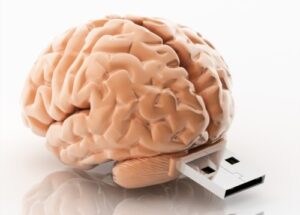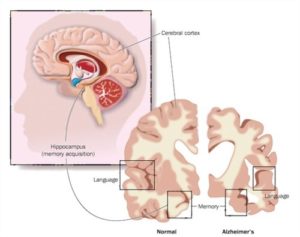The function known as memory is our ability to take in information, store it, and retrieve it at a later date. There are two types of basic memory – short-term (working) and long-term. In essence, it is our memory that makes us the person that we are, and allows us to live our life to the fullest. All our responses are triggered by memories, and this is what causes us to react in a certain way to events and feelings, based on previous experience, either consciously or subconsciously. Our memories give us our likes and dislikes. They allow us to function in life, remembering our daily routine.  Memories allow us to recall and reminisce about previous experiences. Without our memories our life is an empty shell and we are unable to function in the simplest of tasks. Our memories allow us to grow, to learn skills and abilities, to learn from our mistakes.
Memories allow us to recall and reminisce about previous experiences. Without our memories our life is an empty shell and we are unable to function in the simplest of tasks. Our memories allow us to grow, to learn skills and abilities, to learn from our mistakes.
There are three stages of memory – encoding, storage and retrieval. Simply put, memories are formed as neurons, aka nerve cells, become active in the brain, passing chemical and electrical signals and connecting in different patterns or sequences, called synapses. The triggering of these synapses is what recalls a memory. Each memory will have a different sequence. Interestingly the brain storage space may only be comparable with that of a USB flash drive, but due to the efficient way that the neurons connect within the brain there are trillions of synapses forming a complex network, effectively increasing storage capacity to around 1 million GB plus.
Interestingly the brain storage space may only be comparable with that of a USB flash drive, but due to the efficient way that the neurons connect within the brain there are trillions of synapses forming a complex network, effectively increasing storage capacity to around 1 million GB plus.
Although short-term memory is limited, it is said that the brain will never run out of space for storing long-term memories.
Short term memory is what is left after your brain has dismissed other stimuli, such as background noise, weather, etc – stimuli which are not important or relevant to the working memory. It’s basically a notebook for temporary recall, and will fade rapidly unless stimulated. Short term memory can last anywhere from a few minutes to several days.
It is believed that it is only possible to concentrate on 4-6 items in short-term memory. Studies suggest that 50% of new information learnt is lost after 1 hour, and 70% after 24 hours. Meanwhile our ability to think quickly and recall information peaks at age 20 and then begins a slow decline. If we want to recall something tomorrow, such as information for a test, then we need to store it in long term memory, although we can temporarily readdress it and retain it for longer in short-term memory. The best way to form a long-term memory from information is via rehearsal or revision.
 Studies have shown that being tested on something actually ensures that the information is recalled easier. In one study two groups of students spent equal amounts of time studying their notes, but the group who were blindly tested following this had a greater long-term retention of the information.
Studies have shown that being tested on something actually ensures that the information is recalled easier. In one study two groups of students spent equal amounts of time studying their notes, but the group who were blindly tested following this had a greater long-term retention of the information.
Long-term memory is the final permanent stage of memory. Although it should be noted that, whilst permanent, it does not actually mean that the memory can be recalled at will without the necessary stimuli. Long-term memories are either implicit (procedures for completing motor skills such as walking which are remembered subconsciously) or explicit (facts and events recalled consciously, either semantic – fact based, or episodic – relating to a specific event regarding your own experience). Scientists have also now identified that emotional memories are easily remembered as nerve cells are primed by a hormone that is released during emotional arousal, which increases the cells chemical sensitivity to form new memory circuits, allowing them to be easily retrieved. Research also shows that sleep plays an important role in memory as this is when the brain sorts the working memory and either stores or discards information.
So how do we retrieve our memories? Many theories exist but it is believed that there are two main types of retrieval – recall, where information must be consciously retrieved from a memory, and recognition, where outside stimuli trigger a memory by a conscious or subconscious recognition of information.  It should also be remembered that not all memories are true. The memory remains as the last time that you visited it, when it could have been unconsciously influenced by newer memories or emotions before being stored away again.
It should also be remembered that not all memories are true. The memory remains as the last time that you visited it, when it could have been unconsciously influenced by newer memories or emotions before being stored away again.
It is believed that no memory is ever lost, we simply lose the conscious ability to retrieve it, whether due to the fact that they are rarely retrieved and decay sets in, the breakdown of synapses trace due to cognitive problems such as injury, disease, age or dementia, or the intentional blocking of traumatic events.
Memories can also become impaired due to interference from new memories. Smell is a powerful memory trigger, and memories associated with a smell tend to be more vivid. The influence of smell is possibly due to the close proximity of the olfactory nerve to the amygdala, which is connected to the experience of emotion, and the hippocampus, which is essential for memory. Vice versa, memory is vital to smell since it is necessary to recollect the scent, and research has shown that when an area connected to memory is damaged, the ability to identify smells also becomes severely impaired.
The hippocampus, the horse-shoe shaped area in the brain, plays an important role in memory, forming, sorting and storing the memories and consolidating the change from short to long-term. It can be found on both hemispheres of the brain, and damage to this area can cause anterograde amnesia, an impediment in forming new memories. Correct functioning can also decline with age, although not everyone will experience severe memory loss, but some cognitive decline is to be expected as we age. 
The inability to recollect past memories is known as retrograde amnesia, although it may still be possible to make new memories. Although a popular theme in movies, true cases of amnesia regarding one’s identity and past are rare, although it can be temporary with the use of drugs, and the events of a traumatic event, such as a car crash, can be erased or never stored. It is highly unlikely that a knock on the head renders one with amnesia, and a further head injury magically restores the forgotten information.
Around 15-20% of people over the age of 65 experience some kind of cognitive impairment, which can remain stable for years, with little impact in everyday life, or it can increase to affect short term memory, or finally develop into dementia, Alzeihmers’s Disease or Parkinson’s Disease.  Dementia affects over 50 million people worldwide, with a further 10 million diagnosed yearly. It is a decline in mental ability which severely affects memory and is severe enough to interfere with everyday life. Alzeihmer’s Disease is one of the key causes of dementia and is a progressive brain disease which slowly destroys brain cells, impacting on memory, thinking skills, and the ability to function and perform the simplest of tasks. Parkinson’s Disease causes physical symptoms at first, affecting movement and balance, followed by a decline in cognitive function including concentration and forgetfulness, and then may develop into dementia.
Dementia affects over 50 million people worldwide, with a further 10 million diagnosed yearly. It is a decline in mental ability which severely affects memory and is severe enough to interfere with everyday life. Alzeihmer’s Disease is one of the key causes of dementia and is a progressive brain disease which slowly destroys brain cells, impacting on memory, thinking skills, and the ability to function and perform the simplest of tasks. Parkinson’s Disease causes physical symptoms at first, affecting movement and balance, followed by a decline in cognitive function including concentration and forgetfulness, and then may develop into dementia.
While there is no simple “quick fix” for ensuring that your memory stays intact as you age, researchers believe that avoiding stress, leading an active lifestyle, and remaining mentally engaged are important ways to decrease your risk of memory loss.  Whilst some abilities will inevitably become a casualty of age, your memory does not need to be one of them, and according to research some people in their 70’s are able to perform as well as those in their 20s on cognitive tests, and some types of memory, such as semantic (retaining facts), even increase with age.
Whilst some abilities will inevitably become a casualty of age, your memory does not need to be one of them, and according to research some people in their 70’s are able to perform as well as those in their 20s on cognitive tests, and some types of memory, such as semantic (retaining facts), even increase with age.
So what can you do to reduce the risk of cognitive decline, dementia and neuro disease? Mother Nature has provided a helping hand with plant extracts that can alleviate or reduce inflammation which is believed to play a major role in brain disorders, and can fortify brain health:
 Black Seed
Black Seed
Black Seed Oil is rich in many properties essential to improve and protect brain health, including thymoquinone which has antioxidant and anti-inflammatory properties. Neuroinflammaton is thought to play a key role in the development of diseases such as Alzeimer’s and Parkinson’s and research has shown the effectiveness of thymoquinone in reducing inflammation.
This active ingredient has been investigated by researchers since the 1960’s. Black Seed Oil also contains thymohydroquinone, a potent natural acetylcholinesterase inhibitor, ensuring that the neurotransmitter, acetylcholine, an important compound for memory retention and overall brain function, as well as muscle function, REM sleep, and endocrine system regulation, remains active for longer. It also supports higher levels of GABA, a neurotransmitter known to improve cognitive function. Acetylcholine has also been shown to promote neuroplasticity, directly involved with learning and memory, and to create more receptors and stronger connections between neurons.
To show the importance of thymohydroquinone, it should be understood that pharmaceutical-grade acetylcholinesterase inhibitors are used to treat a wide range of ailments including Alzheimer’s, autism, dementia, neurodegenerative conditions, schizophrenia and Parkinson’s. Anecdotal research has shown increased acetylcholine and GABA levels can inhibit “brain fog” in the average person, reduce incidental forgetfulness and support cognitive performance. The presence of omega-3 and omega-6 help to promote blood circulation to the brain and maximise brain function.
There have been many studies which confirm the effectiveness of Black Seed Oil on memory and cognitive function. To mention just a few: One study over a 9 week period, involving 40 healthy adults in their 50s, confirmed significant improvements on concentration, memory and general cognition, with the score in a logical memory test of those taking Black Seed Oil far exceeding those in the placebo group. A 2018 animal study in Human and Experimental Toxicology indicated that Black Seed Oil reduced inflammation and improved cognitive decline, warding off the symptoms of Alzheimer’s Disease. A 2014 study on adolescent males found that Black Seed Oil improved cognition and mood, whilst decreasing anxiety levels. It is becoming increasingly clear with each study that Black Seed Oil’s anti-inflammatory, antioxidant and neuroprotective properties can boost the brain and prevent or delay the degradation of neurotransmitters, thus protecting against dementia and neuro diseases.
 Walnut Oil
Walnut Oil
A walnut has the appearance of a little brain, so is it any wonder that the cold-pressed oil obtained from this nut has a whole host of benefits for the brain! Firstly it nourishes the brain cells and improves the elasticity of capillaries within the brain, as well as reducing inflammation and oxidative stress, two drivers of cognitive decline. Walnut Oil is rich in omega-3 which stimulates brain activity as well as being a vital component of the cell wall, which is necessary for complete nerve signal transmission. It is suggested that walnut can protect against amyloid-beta protein, which is the main constituent of amyloid plaques which develop in the areas of the brain concerned with cognitive functions, including memory, and seems to be a prerequisite of developing Alzeheimers’s Disease.
Several clinical and observational studies can testify to the positive effect of walnut on cognition, concentration and memory. In one animal study of Alzheimer’s Disease over a ten month period, there were definite improvements in memory and learning skills, with a reduction in anxiety.
Another 8 week animal study confirmed the reversal of age-related impairment in brain-function. One large study focused on women confirmed that the women taking walnut had a sharper memory than those who did not. Another study in 2014, published in The Journal of Nutrition, Health & Aging, used data collected over several years provided by the National Health and Nutrition Examination Survey (NHANES) from adults between the ages of 20 to 90, and confirmed that walnut led to better performance of mental ability tests which included memory, information processing speed and concentration. An observational study on older adults also concluded that walnuts provided a better memory, faster processing speed and more mental flexibility.
A further study of older adults linked walnuts to significant memory improvement. Overall it’s fair to say that walnut oil can improve age-related decline, improve learning ability and the thinking function, and strengthen memory and concentration regardless of age.
So add some Black Seed or Walnut Oil to your diet today. One teaspoon a day can help to promote brain health and prevent degradation in the future. Keep your brain in optimum condition and enjoy making happy memories, then in later years when the body may be frail and unable to partake in new adventures, you can look back with ease and say “I remember when…”

